These invisible spores are all around us in the air and that isn't a health concern on its own. Spores need moisture to grow into problematic mould, as we know it and when that happens, it can lead to some health issues, including allergic reactions and asthma attacks. Some moulds produce toxic substances called mycotoxins.
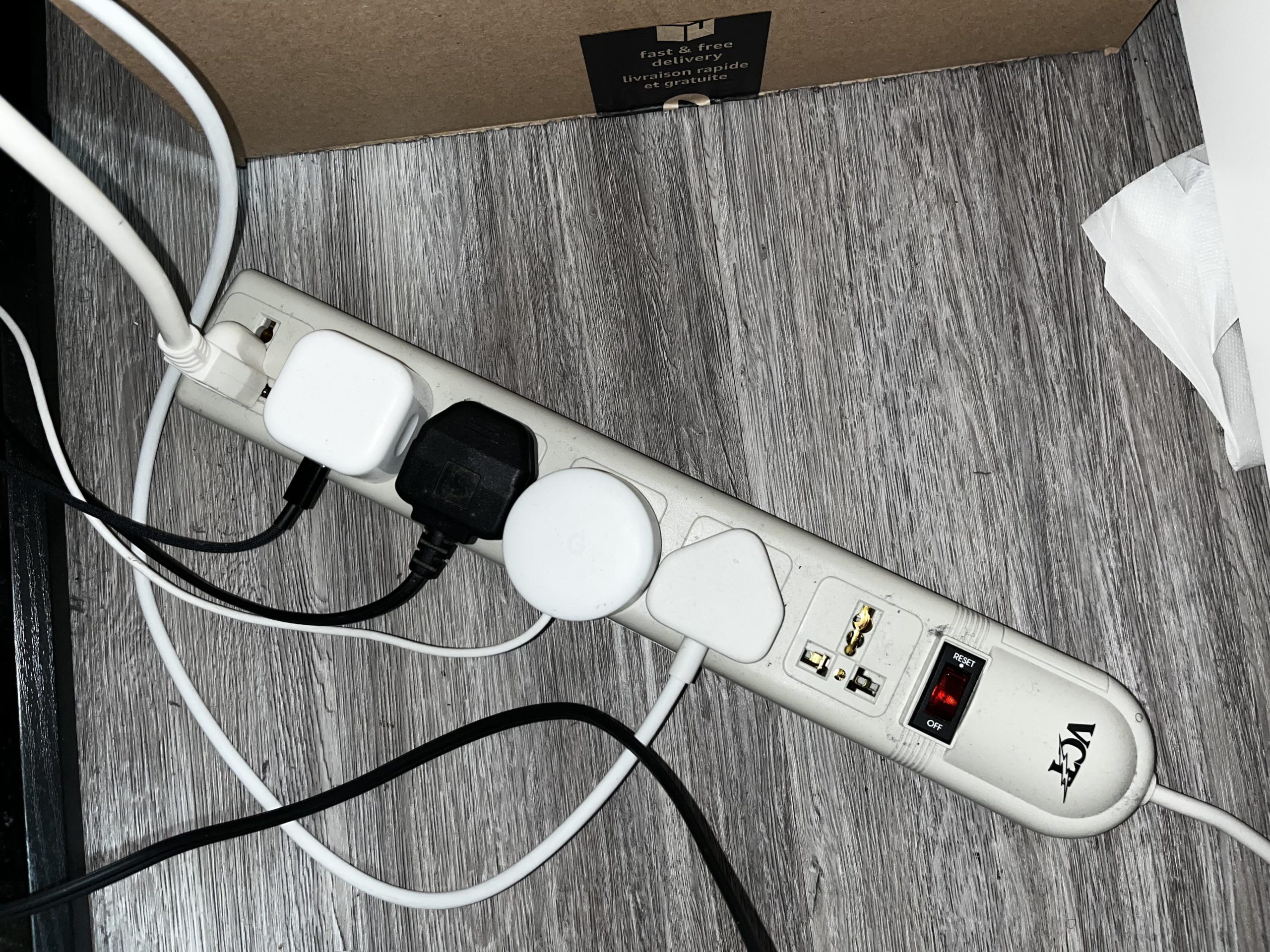
Common Household Items That Could Kill You
1. Toothpaste
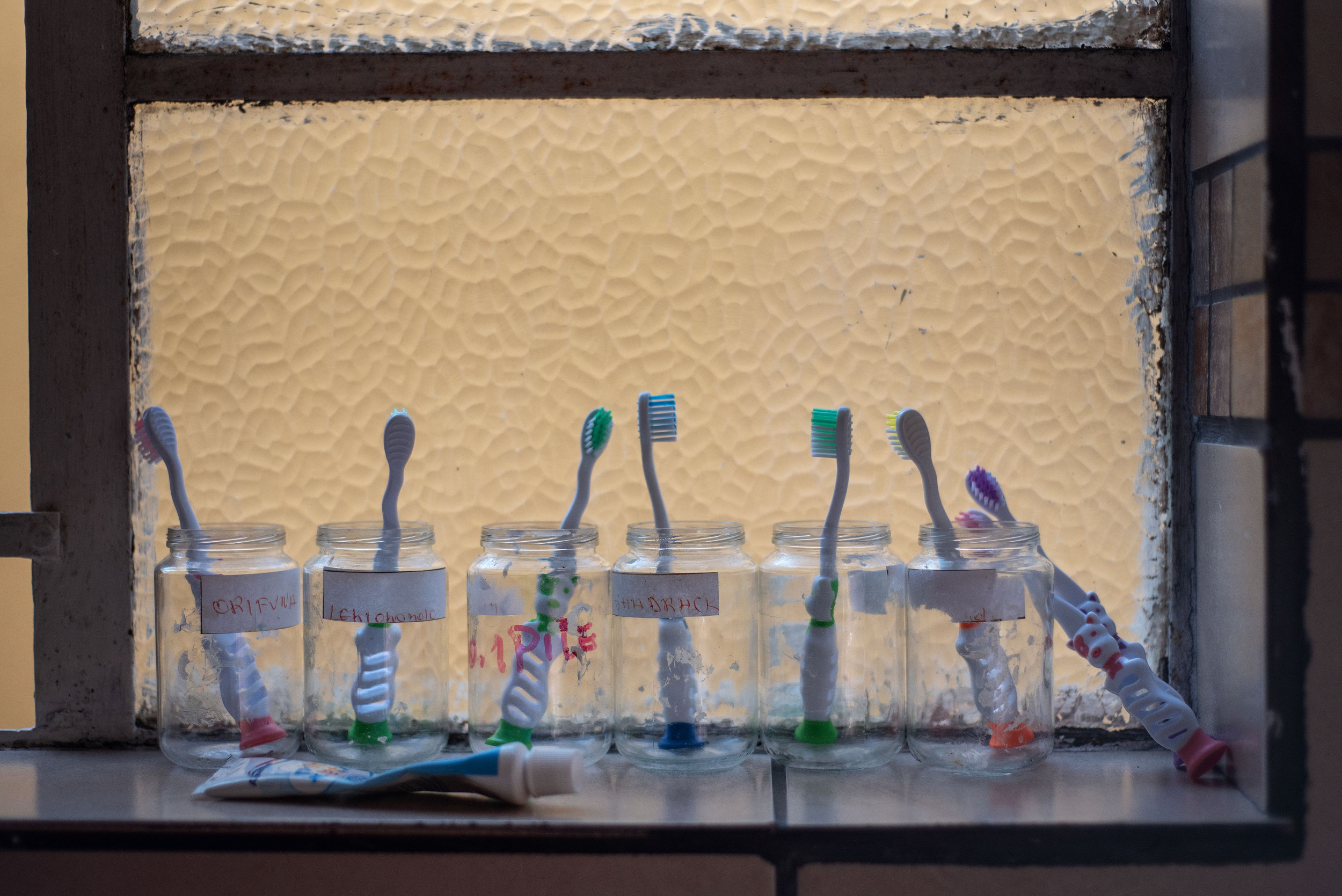 Image source / Newsweek
Image source / NewsweekStrange to hear that something that is meant to be used in the mouth and around your gums and teeth can actually be a danger to you if you swallow it! As toothpaste contains fluoride, if you ingest too much of it, it can cause stomach pain and, more importantly, intestinal blockage. Make sure you and your family are using the designated pea-sized amount, thoroughly rinsing with each brush.
2. Household Plants
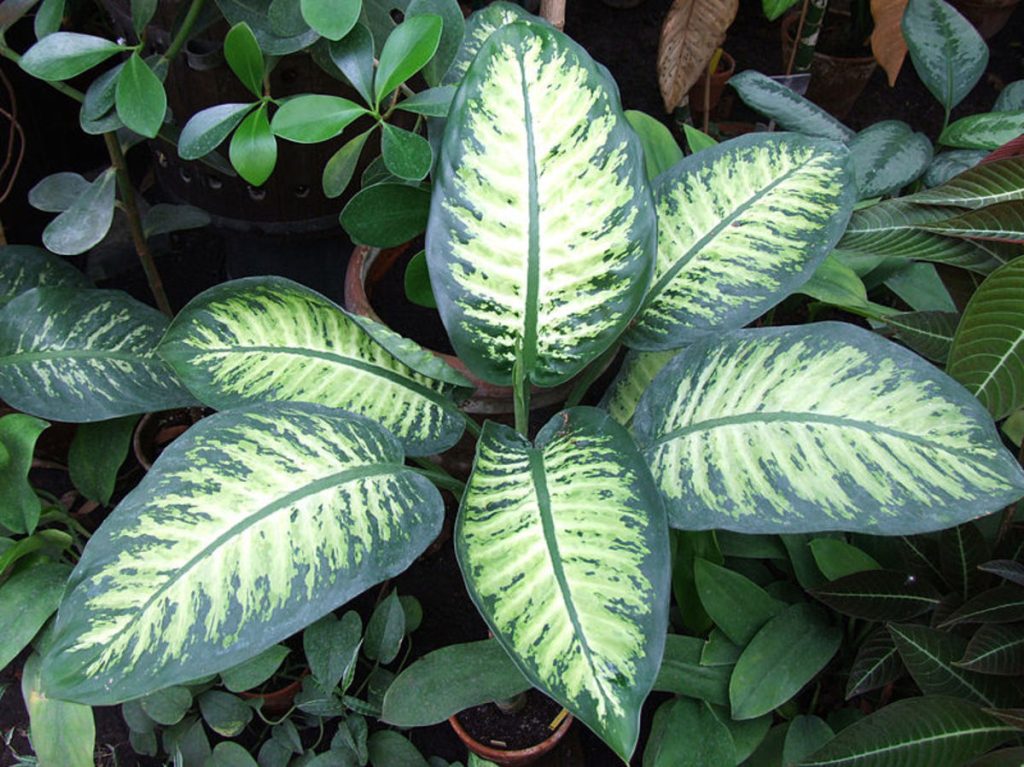 Image source / Dengarden
Image source / DengardenThere's no doubt that house plants can add that finishing touch to a room. The same can be said for popular varieties of flowers, such as lilies and daffodils. They may look pretty but they can dangerous if you have children or pets running around the home and possibly putting them in their mouths. The varieties mentioned contain toxins and dangerous chemicals to protect themselves from insects and animals so be aware.
3. Mild Pain Relievers
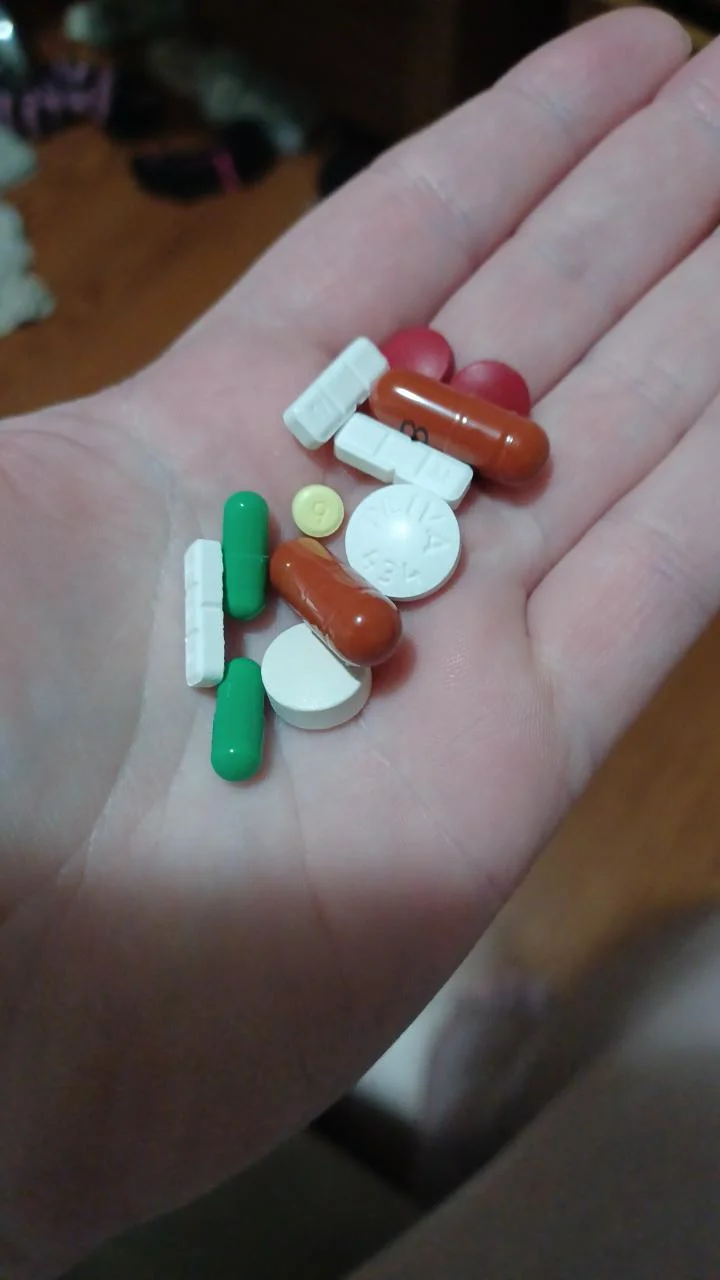 Image source / Reddit
Image source / RedditThere's always stories in the headlines about pills, medication abuse, opioids and addiction. What you probably don't know is that acetaminophen (which often goes by the brand name of Tylenol) can be dangerous, too, if taken incorrectly. About 500 people die each year related to acetaminophen overdoses. Experts say you shouldn't take more than 3,000 mg per day or you could risk liver damage.
4. Drinking Water
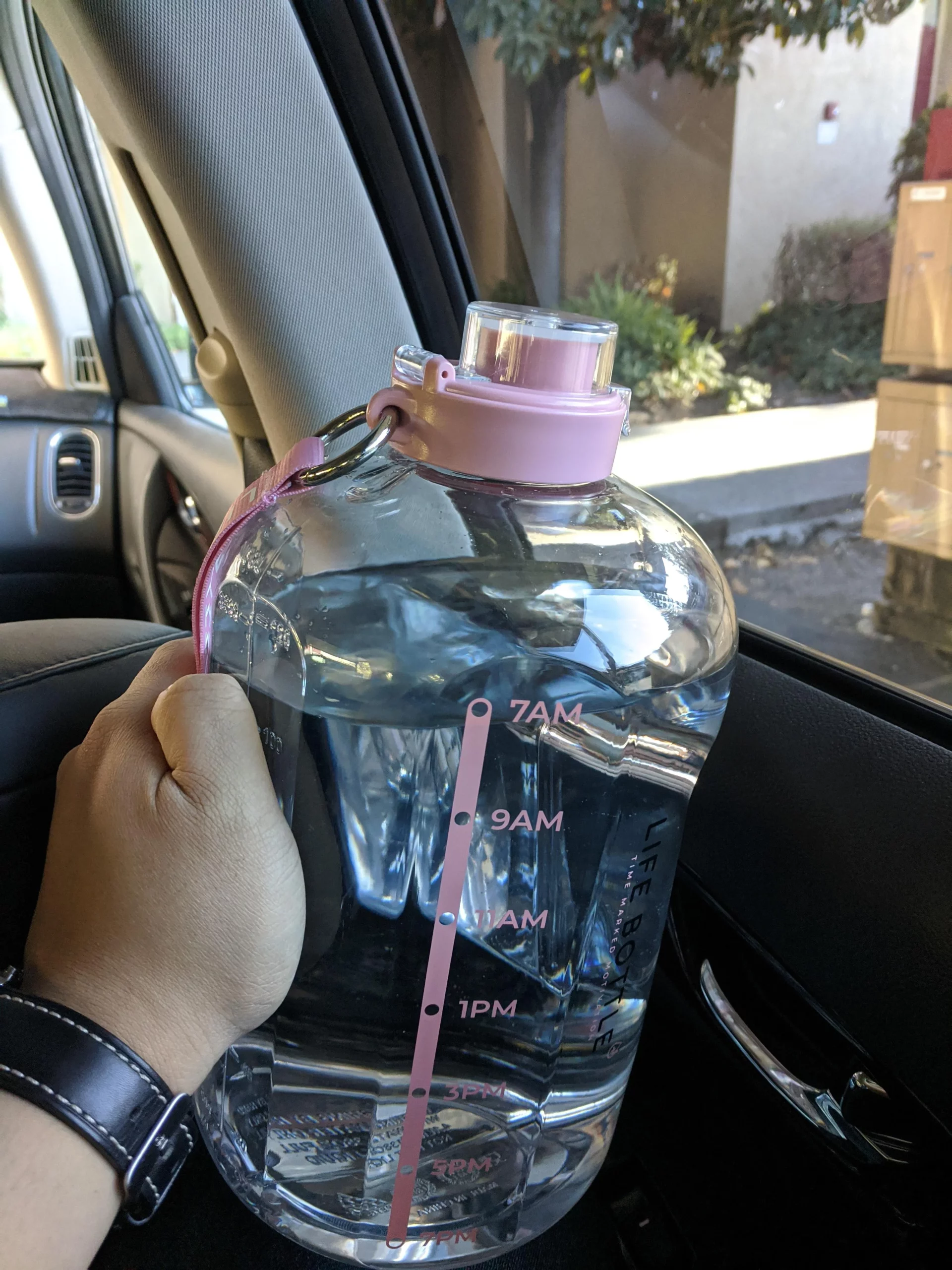 Image source / RedditHave you ever heard of hyponatremia? It's the medical term for water intoxication and occurs when you drink too much water. Yes, it's confusing as we are always told to drink plenty water to keep us healthy! The sodium in our body has to balance fluids in and around the cells and drinking too much water can cause an imbalance, causing the liquid to move from your blood to inside your cells, making them swell. Kidney problems could be the result as they try to deal with all this liquid.
Image source / RedditHave you ever heard of hyponatremia? It's the medical term for water intoxication and occurs when you drink too much water. Yes, it's confusing as we are always told to drink plenty water to keep us healthy! The sodium in our body has to balance fluids in and around the cells and drinking too much water can cause an imbalance, causing the liquid to move from your blood to inside your cells, making them swell. Kidney problems could be the result as they try to deal with all this liquid.5. Hot Dogs
 Image source / RedditWe love to eat them at every occasion. We will even make up occasions just so we can enjoy them! However, hot dogs are not all fun and games. In 2010, more than 10,000 children under the age of 14, were rushed to the emergency room due to choking on a hot dog. Out of those, 77 lost their lives.
Image source / RedditWe love to eat them at every occasion. We will even make up occasions just so we can enjoy them! However, hot dogs are not all fun and games. In 2010, more than 10,000 children under the age of 14, were rushed to the emergency room due to choking on a hot dog. Out of those, 77 lost their lives.6. Scarves
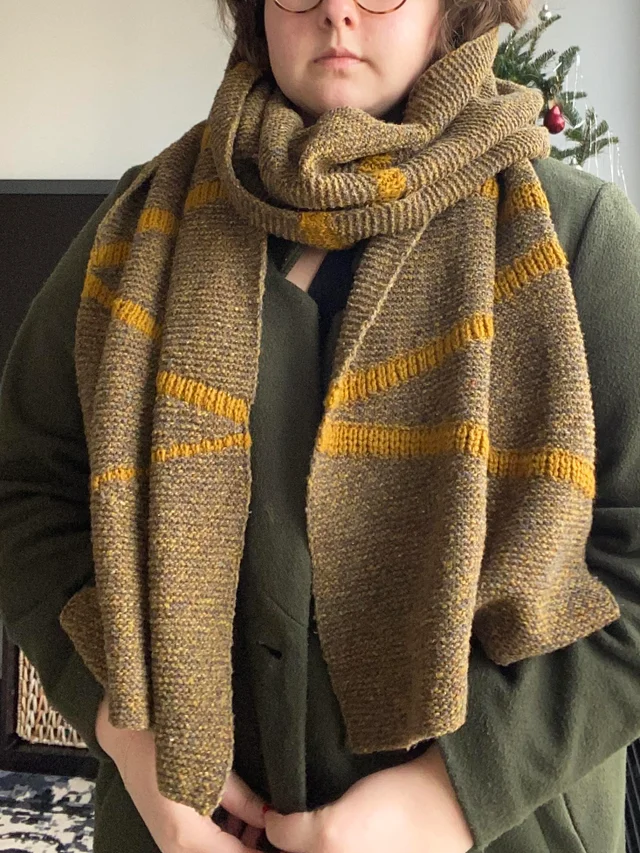 Image source / Reddit
Image source / RedditScarves are a common fashion accessory but they are not always safe. They can get caught up in anything that moves, presenting safety issues throughout your home. Blenders, disposals, garbage and lawn mowers, have all been involved in freak accidents, getting tangled up in the machinery and resulting in deaths, in some cases.
7. Aerosol Cans
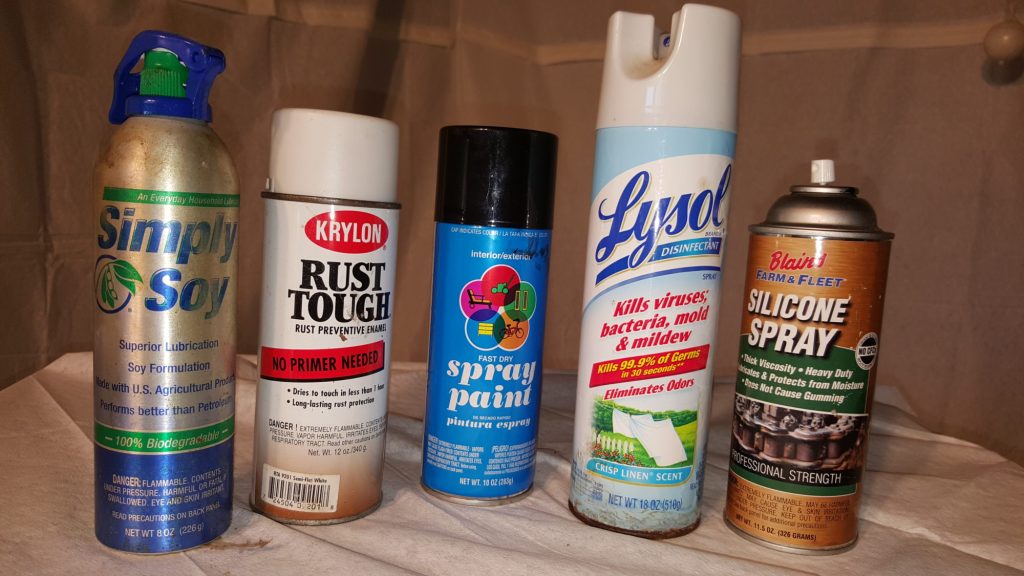 Image source / Quora
Image source / QuoraAerosol cans are very useful if you need to spray paint or get rid of those pesky bugs but they might also secretly kill you if you’re not careful! In one case, fashion blogger Rebecca Burger was hit in the head by an exploding aerosol can and it killed her. Other unfortunate victims have died from sniffing the contents.
8. Button Batteries
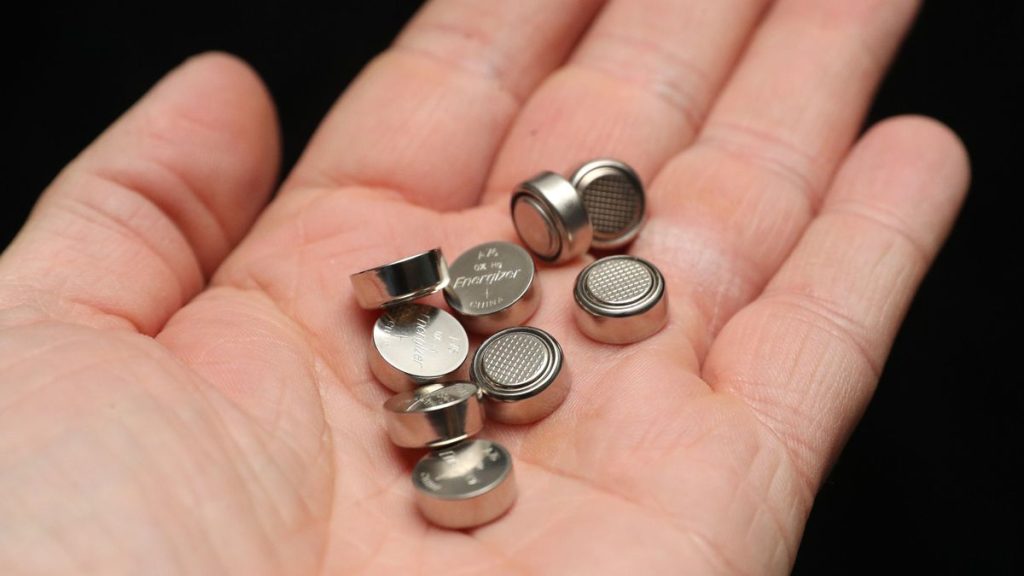 Image source / Daily Record
Image source / Daily RecordButton batteries can regularly be found in children’s toys, remote controls, key fobs and watches. If one is swallowed by a child, there may be no symptoms but, inside the body, the battery could corrode, causing internal bleeding and burning, when mixed with bodily fluids.
9. Tumble Dryer
 Image source / The Sun
Image source / The SunIf you don’t clean your dryer vent regularly and it gets clogged, the situation can lead to disaster. The lint can easily catch fire and the fire department will testify to this. They have been called out to homes where the whole house has caught fire when this happened, mainly when the owners were away from the property.
10. Flat-Screen TV
 Image source / Polygon
Image source / PolygonYour flat screen tv could pose a huge hazard to toddlers and young children. According to a 2012 study published in the journal 'Paediatrics', more than 17,000 kids were taken to the emergency room each year between 1990 to 2011 after televisions tipped over them. Keep those little ones safe and mount your tv to the wall.
11. Electric Blankets
 Image source / Reddit
Image source / RedditA report by the National Center for Biotechnology Information revealed two incidents where people died from heat stroke when falling asleep with their electric blankets plugged in. Some professionals even say the blankets can lead to cancer and reproductive issues. More scientific evidence needs to be gathered but maybe add more layers to your bed instead, when you're chilly.
12. Gas Range
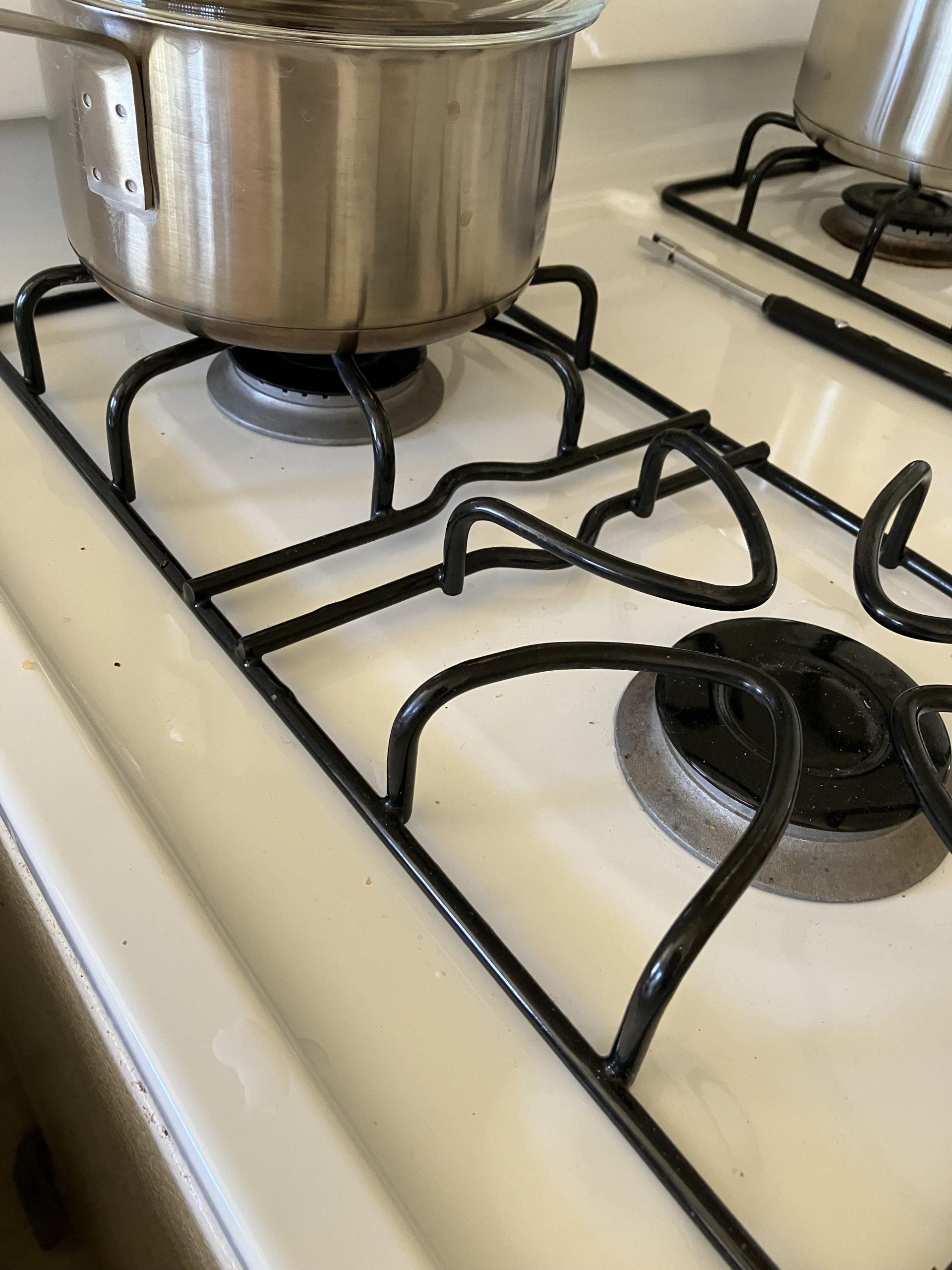 Image source /Reddit
Image source /RedditCarbon monoxide poisoning is a very serious risk as it is the main cause of poisoning death. It can come from your gas oven, space heater or charcoal grill being left on for too long or forgetting to turn it off. It's a colorless, odorless gas and can be detected when it is too late.
13. Extension Cords
 Image source / Reddit
Image source / RedditNot only are they a serious tripping hazard, but extension cords cause over 3,300 residential fires every year, of which 50 result in deaths. They are mostly caused by mis-use or overloading the system so make sure that you and your kids are using them correctly and only on a temporary basis.
14. Air Conditioners
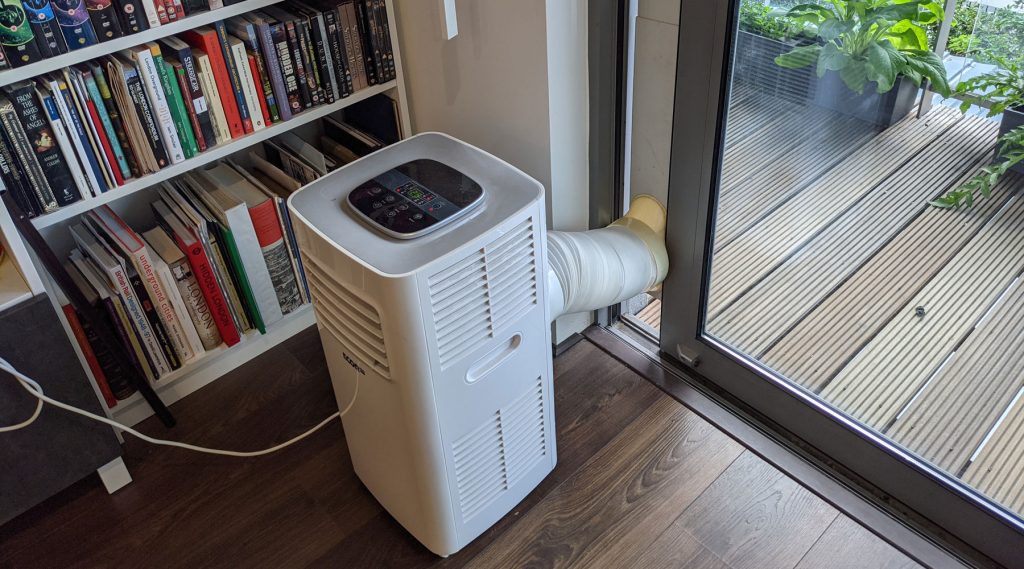 IanVisits
IanVisitsIf your air con is leaking, it's setting itself up for refrigerant poisoning, which can cause seizures, heart palpitations and can cut off oxygen to your lungs and cells. The outcome in this case, unfortunately, is death. The cooling devices work by using Freon, a refrigerant substance which transforms from liquid to a dangerous, odorless gas.
15. Midol
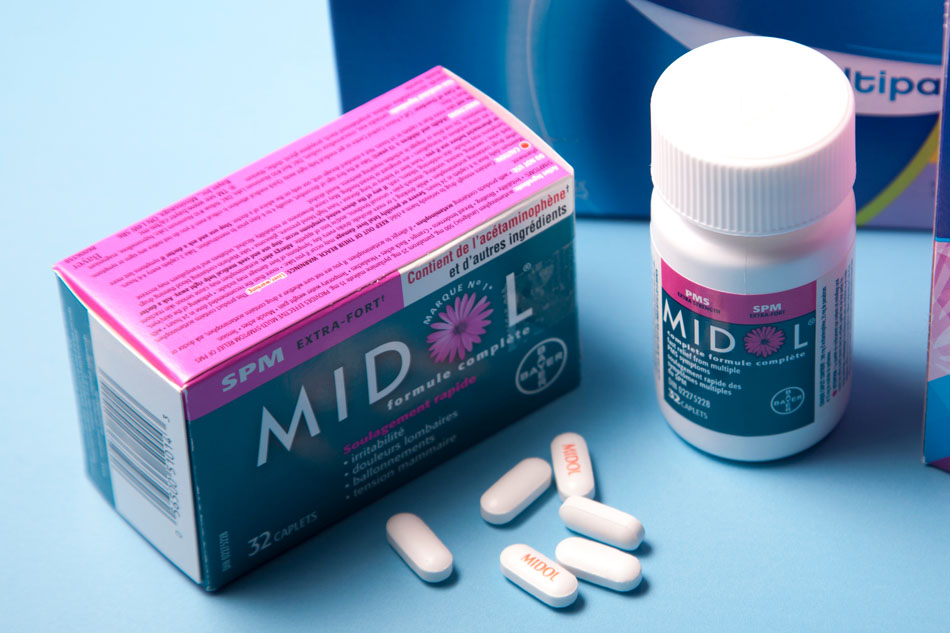 Image source / Health Reporter
Image source / Health ReporterIt's not only this cramp reliever but any medication with acetaminophen that can be life threatening when you consume too much of it. Plenty people use these medicines safely every day but there are also around 500 deaths related to APAP overdoses each year, according to a Clinical Liver Disease report. Never consume more than 3000 mg per day.
16. Helmet
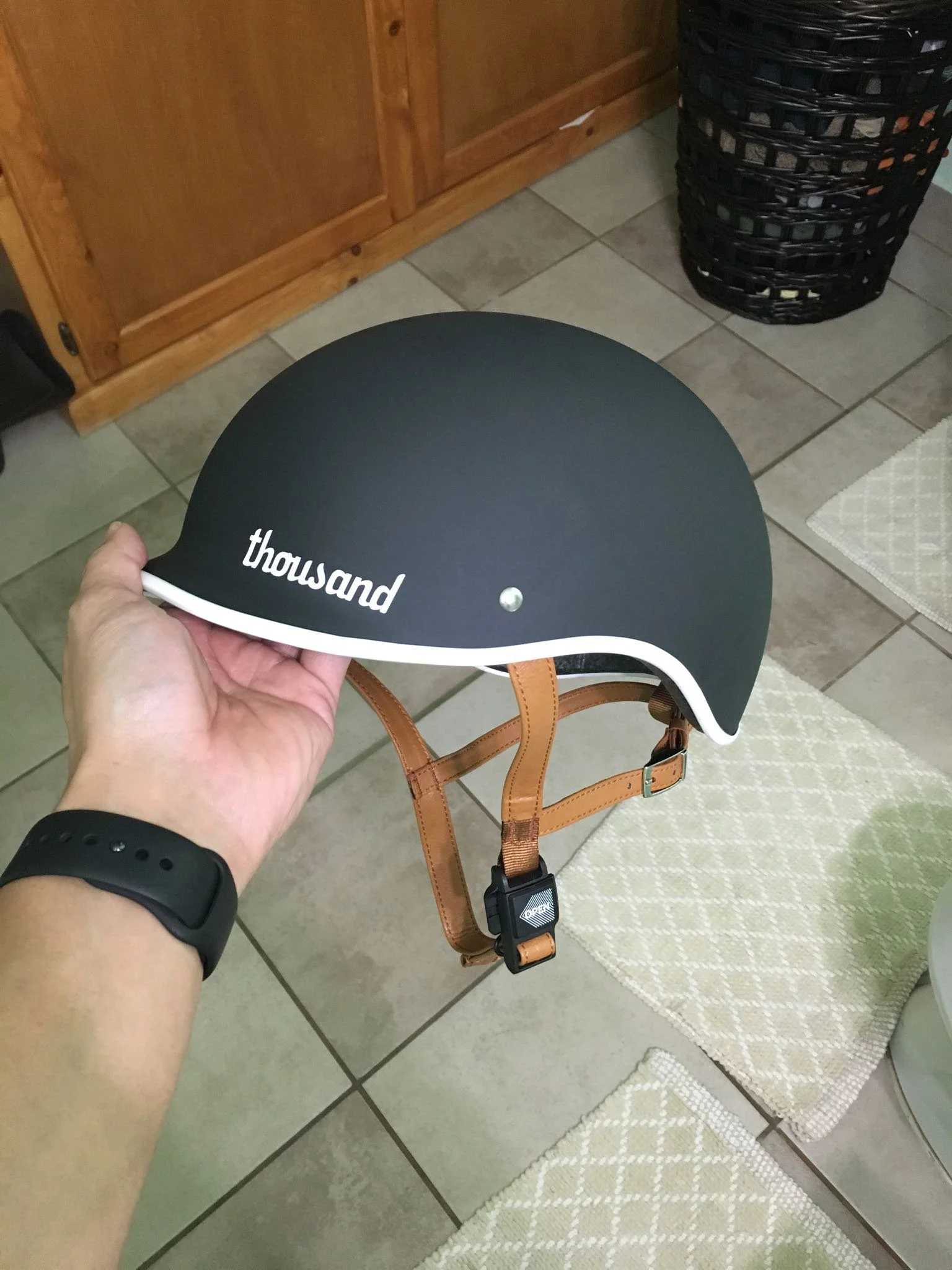 Image source /Reddit
Image source /RedditEven if you are vigilant about wearing your helmet, you should keep in mind that helmets are generally only designed to protect from very specific types of impacts. That means a bike helmet may not be the best choice to use if you are into roller blading or riding horses.
17. Lead Paint
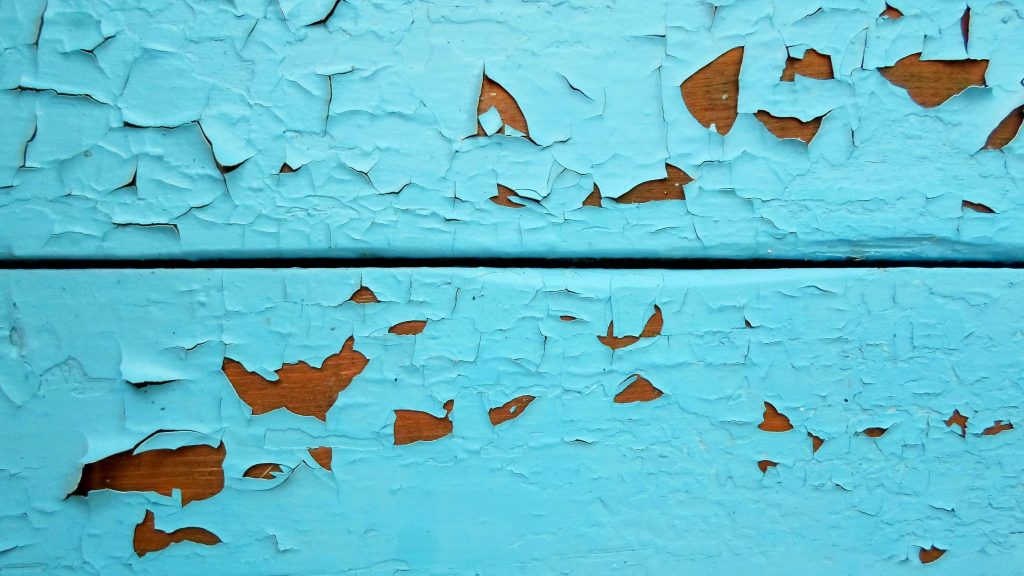 Image source / ManoManoLead based paint is not harmful providing it is not cracking or chipped. You may have some if your home was built before 1978. If you are novating or the paint is peeling, this is when things can become dangerous. Lead based paint can be toxic if it's ingested and exposure to lead is dangerous for everyone, particularly pregnant women and children.
Image source / ManoManoLead based paint is not harmful providing it is not cracking or chipped. You may have some if your home was built before 1978. If you are novating or the paint is peeling, this is when things can become dangerous. Lead based paint can be toxic if it's ingested and exposure to lead is dangerous for everyone, particularly pregnant women and children.18. Mould
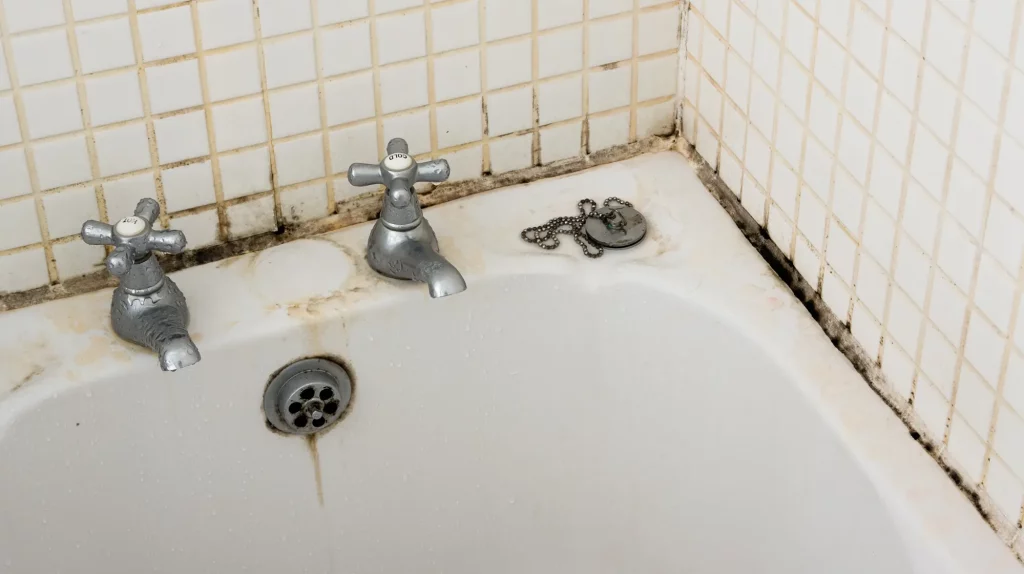 Image source / Lansing State Journal
Image source / Lansing State Journal19. Deadly Odorless Gas
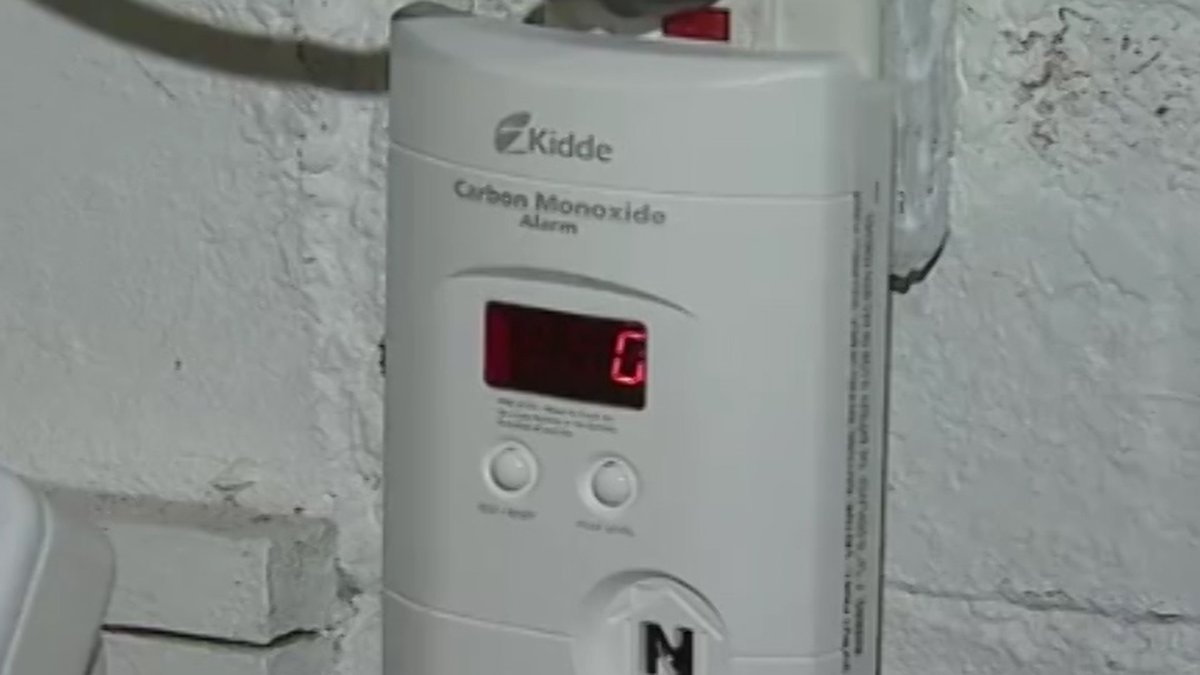 Image source / KTVFWe all go to sleep at night but every year 170 of us never wake up, thanks to this silent killer. Carbon monoxide poisoning can be caused by malfunctioning fuel burning appliances such as furnaces, ranges, water and room heaters. One way to protect yourself is to vent the exhaust of these appliances properly. Install a standard carbon monoxide detector - they only cost 20 bucks.
Image source / KTVFWe all go to sleep at night but every year 170 of us never wake up, thanks to this silent killer. Carbon monoxide poisoning can be caused by malfunctioning fuel burning appliances such as furnaces, ranges, water and room heaters. One way to protect yourself is to vent the exhaust of these appliances properly. Install a standard carbon monoxide detector - they only cost 20 bucks.20. Magnets
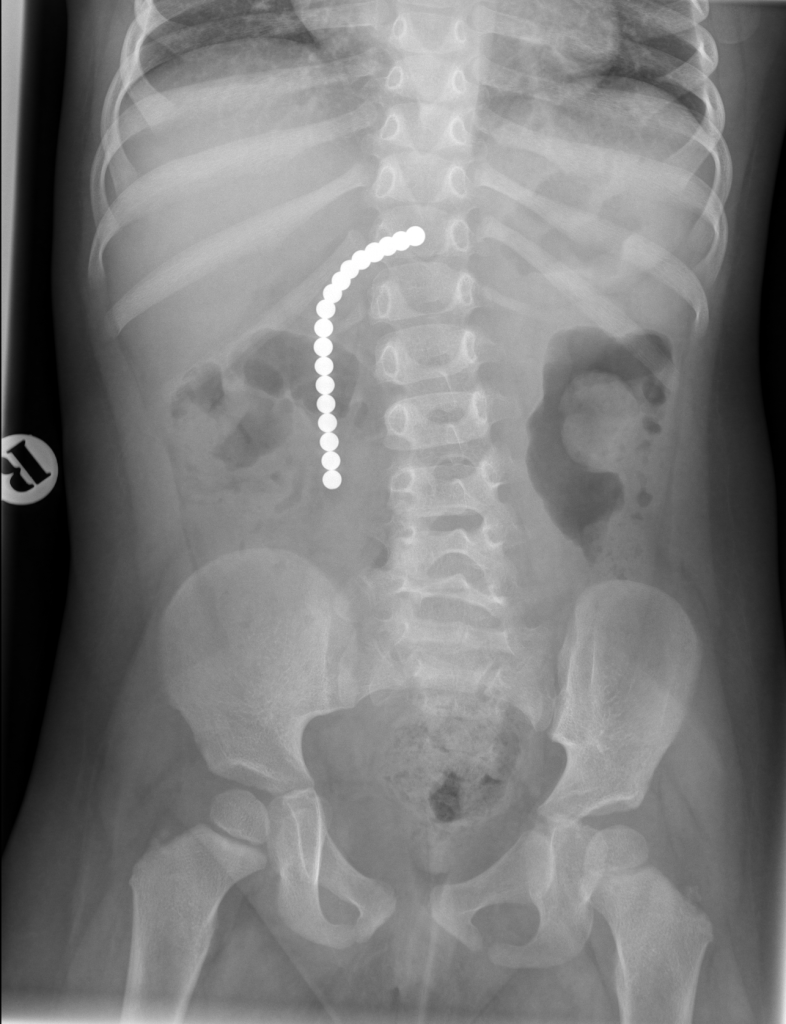 Image source / Business Insider
Image source / Business InsiderIf a child swallows small magnets, the terrifying thing is that they can stick together and trap and compress portions of the bowel wall between them. This could potentially lead to perforation, ischemia, sepsis and bowel obstructions. Keep magnets of any kind away from kids and pets, making sure you keep a close eye on children's toys that may involve magnets.
21. Bathtub
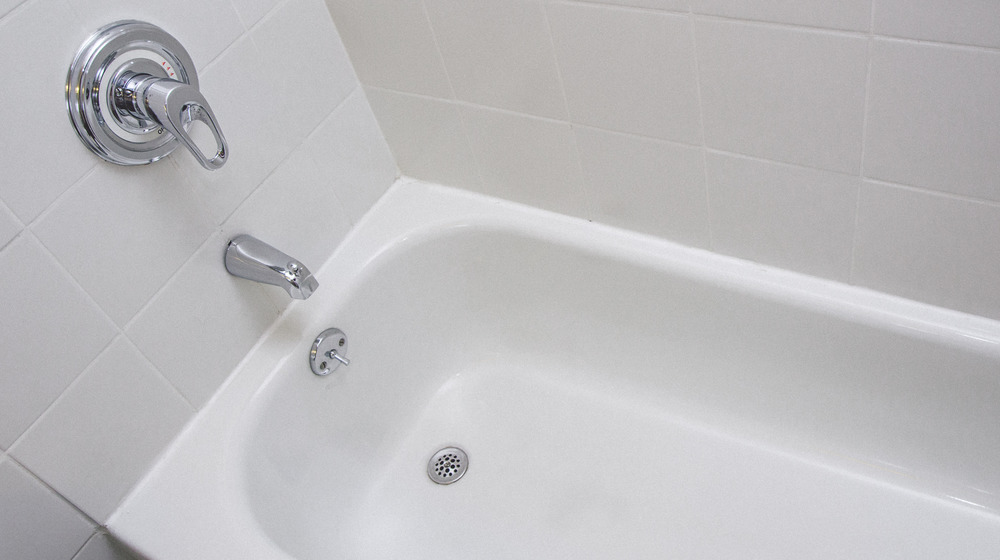 Image source / Health Digest
Image source / Health DigestIn the U.S., drowning is the leading cause of death from unintentional injury in children younger than 4 years old. Often, when people think of drowning, they think of pools, lakes and the sea. However, the very spot where you bathe your kids quite regularly can be just as deadly - the bathtub. Don't leave the room, even for a minute and don't let your judgment slide, even if your child is a little older. It's easy for anyone to slip, fall and go under.
22. Christmas Tree
 Image source / CBS
Image source / CBSEmergency workers respond to an average of 210 Christmas tree fires per year. Bear in mind that a fresh Christmas tree, one that is deep green and has needles that are difficult to pull from the branches and a slightly sticky trunk, is less likely to catch fire compared to one that is too dry. Place your tree away from radiators and fireplaces.
23. Storage Chests
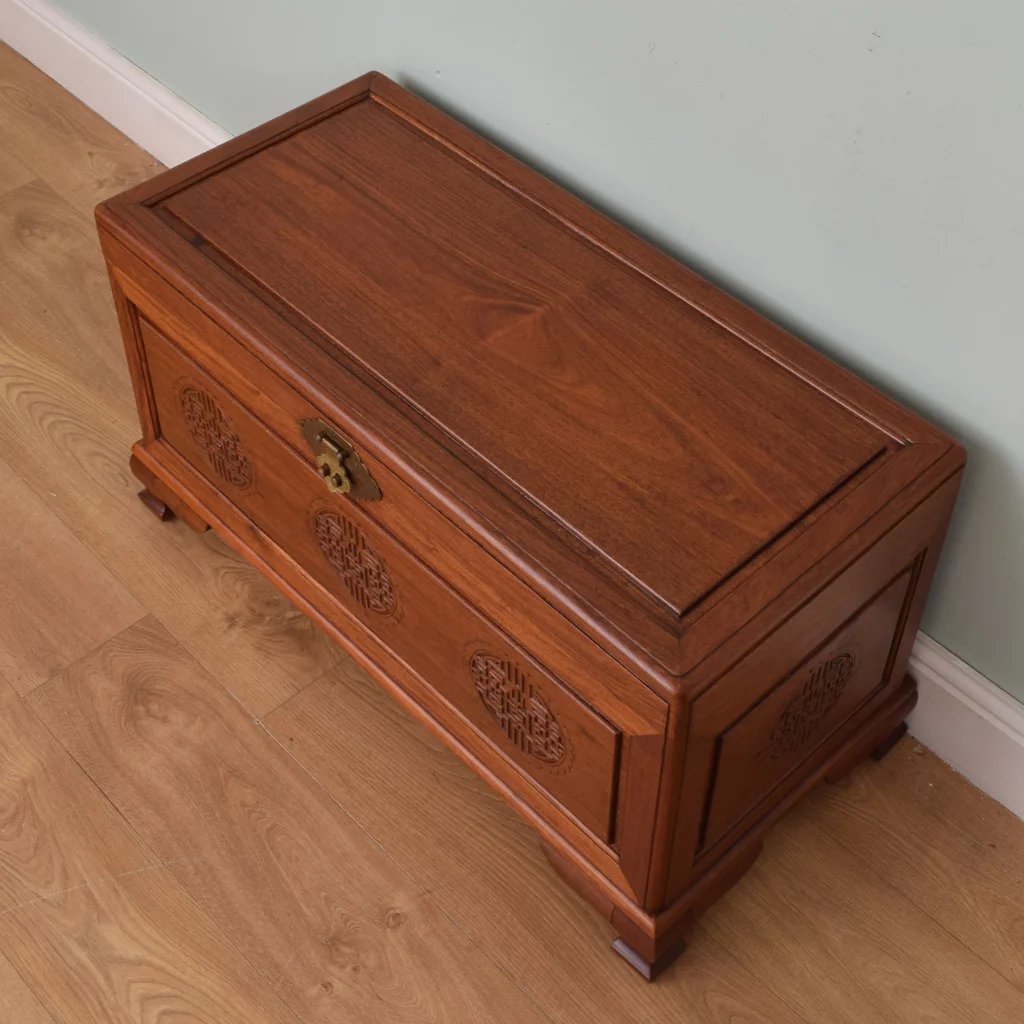 Image source / RestoreIt
Image source / RestoreItYou already know refrigerators and freezers pose a hazard to curious kids but don't forget about storage chests. Between 1996 and 2014, 34 children died after climbing inside storage chests. Most chests have the facility to lock them and parents should definitely choose one which does - better to be safe than sorry.
24. Hot Tubs and Swimming Pools
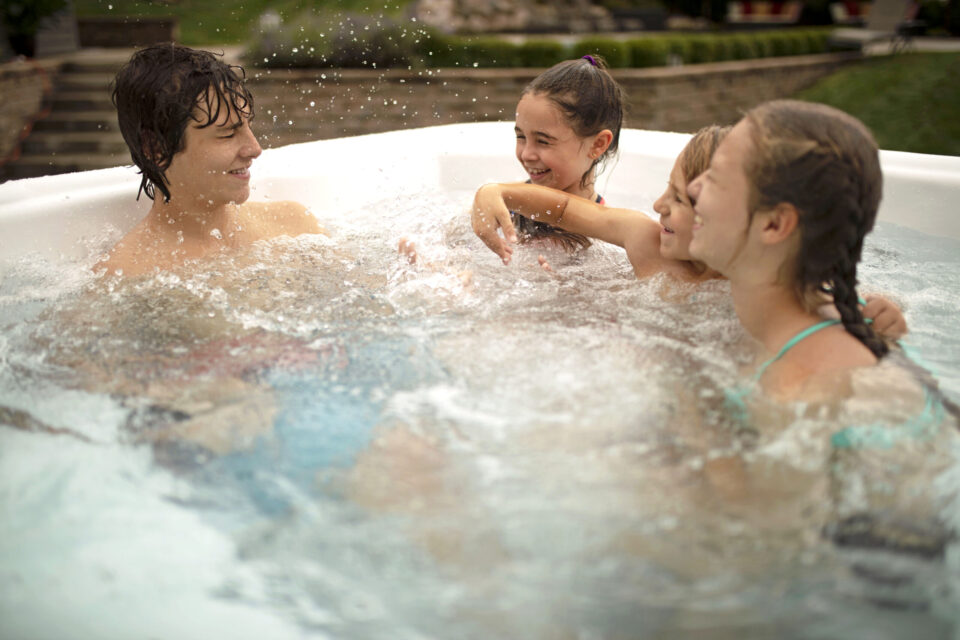 Image source / Nordic Ice
Image source / Nordic IceHot tubs and pools are completely safe because of the chlorine. Well, that's not strictly true. Cryptosporidium, a chlorine resistant parasite, could be hanging out. A report in Medical News Today discovered the number of these parasites in pools and hot tubs is increasing and there were over a thousand cases of illness as well as hundreds of hospitalizations and one death between 2011 and 2012.
25. Anbesol
 Image source / Better Chemist
Image source / Better ChemistWhen you or your child has a toothache or canker sore, you may well have used Anbesol to relieve the nagging pain. The FDA has warned that the medicine with the active ingredient benzocaine could kill you. If used, there’s a potential for developing Methemoglobinemia. This reduces the oxygen carried through the bloodstream, developing into shortness of breath and going blue in the face.
26. Snow Blower
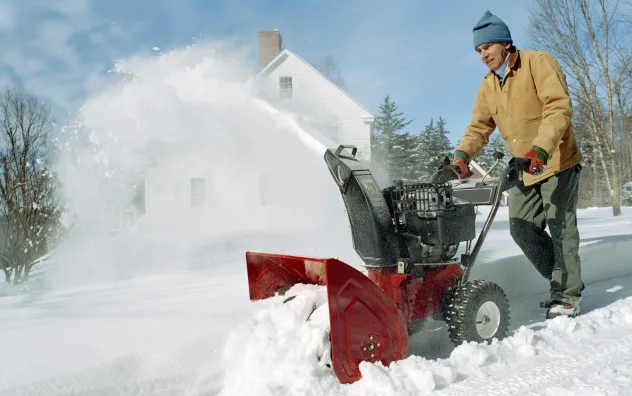 Image source / AccuWeather
Image source / AccuWeatherThere have been approximately 9000 people who have lost fingers from snowblower injuries, over the past two decades. While a snowblower may not seem quite as dangerous as your lawn mower, you should NEVER use your hand to clear a blockage. Turn the thing off and use a stick.
27. Decomposing Decks
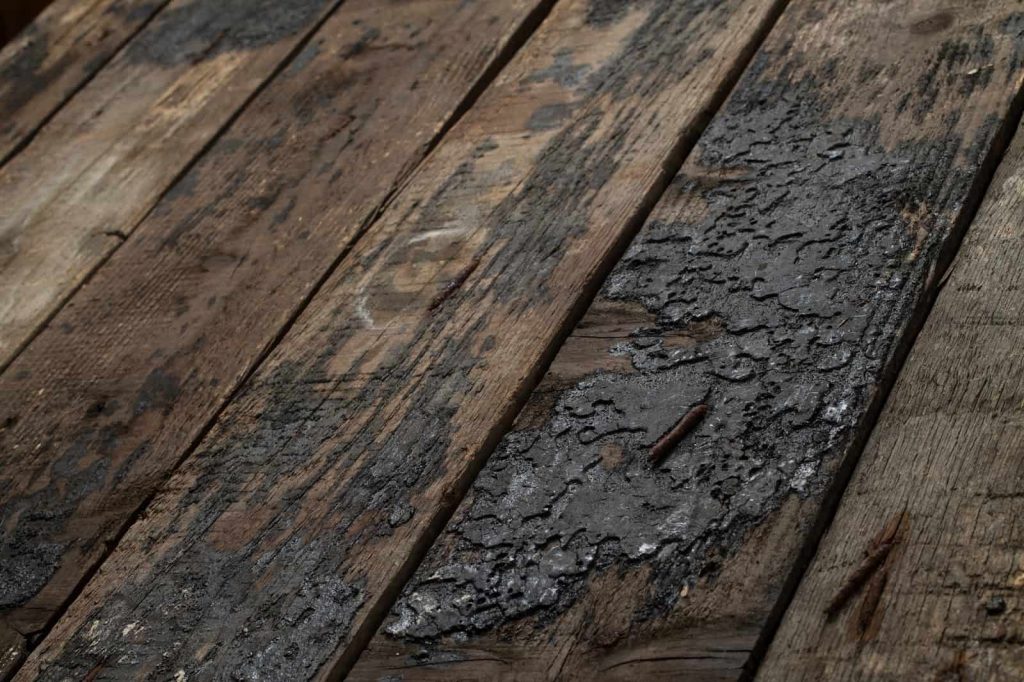 Image source / TreatwiseBe warned! I f the brackets and fasteners that hold your deck together are as corroded as the one in the image above, then your back yard paradise is in danger of turning into a pile of tinder sticks. Water and weather takes its toll on metal fasteners and joist hangers. Even treated decking lumber can react negatively with them and leads to corrosion and possibly a serious incident.
Image source / TreatwiseBe warned! I f the brackets and fasteners that hold your deck together are as corroded as the one in the image above, then your back yard paradise is in danger of turning into a pile of tinder sticks. Water and weather takes its toll on metal fasteners and joist hangers. Even treated decking lumber can react negatively with them and leads to corrosion and possibly a serious incident.28. Essential Oils
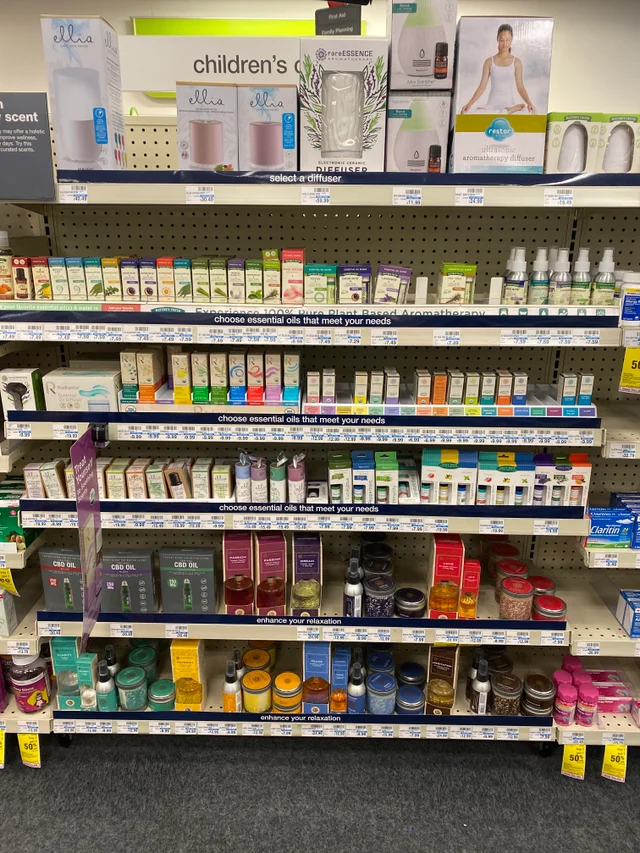 Image source / RedditEssential oils such as lavender, peppermint and tea tree oils are often used as bathroom or bedroom essentials as their scent helps in stress and relaxation relief. While diluted essential oils are generally safe for massaging into the skin or inhaling through a diffuser, they are not safe to consume even if they are 'natural', being derived from plants and are poisonous.
Image source / RedditEssential oils such as lavender, peppermint and tea tree oils are often used as bathroom or bedroom essentials as their scent helps in stress and relaxation relief. While diluted essential oils are generally safe for massaging into the skin or inhaling through a diffuser, they are not safe to consume even if they are 'natural', being derived from plants and are poisonous.29. Furniture Polish
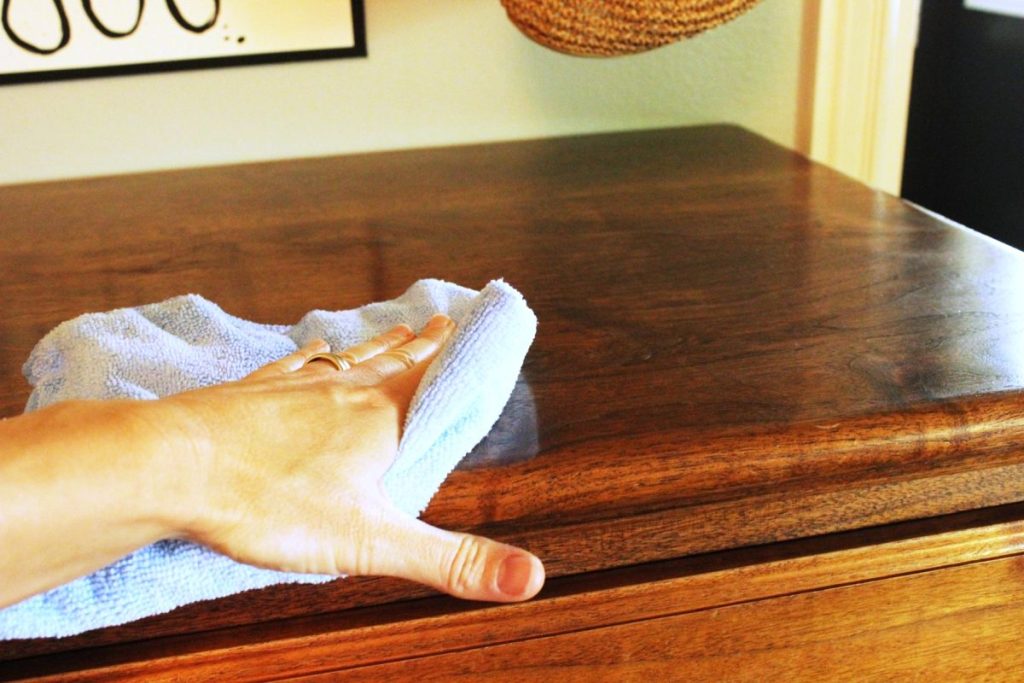 Image source / HomeditFurniture polish may bring your wooden furniture back to life but it is extremely toxic when inhaled or swallowed. It usually contains harmful substances like ammonia, nitrobenzene and phenol which can cause irritation of the eyes, skin, lungs and windpipe. When ingested, furniture polish may lead to severe pain in the mouth, nose, throat and cause breathing difficulties.
Image source / HomeditFurniture polish may bring your wooden furniture back to life but it is extremely toxic when inhaled or swallowed. It usually contains harmful substances like ammonia, nitrobenzene and phenol which can cause irritation of the eyes, skin, lungs and windpipe. When ingested, furniture polish may lead to severe pain in the mouth, nose, throat and cause breathing difficulties.30. Baby Bottles
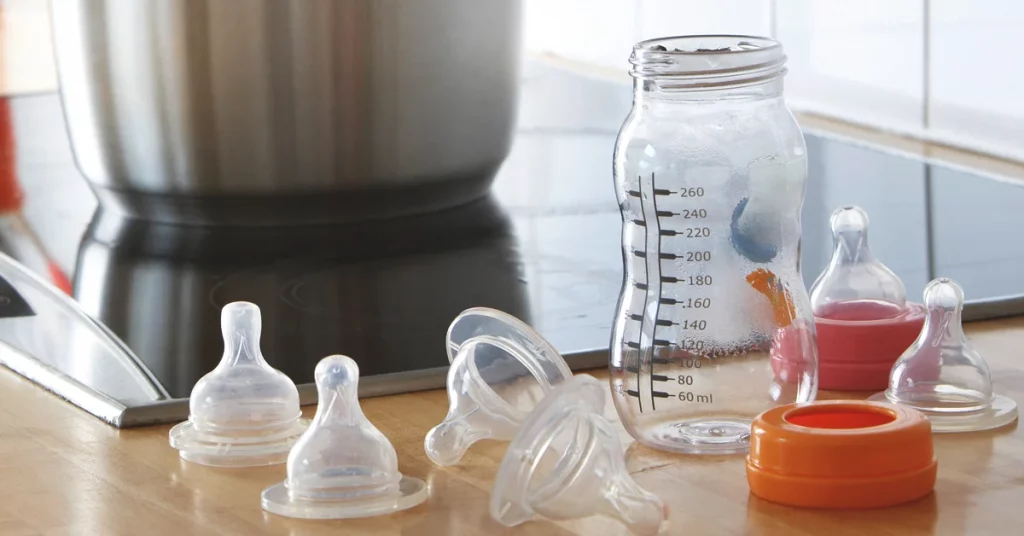 Image source / HealthlineCanada has taken the first steps to ban the sale of baby bottles made from polycarbonate plastics, the most common type on the market. It has done so because the plastics are made with a chemical called bisphenol-a (BPA). When heated, the baby bottles can release BPA and this could possibly cause development and neurological problems for infants.
Image source / HealthlineCanada has taken the first steps to ban the sale of baby bottles made from polycarbonate plastics, the most common type on the market. It has done so because the plastics are made with a chemical called bisphenol-a (BPA). When heated, the baby bottles can release BPA and this could possibly cause development and neurological problems for infants. 